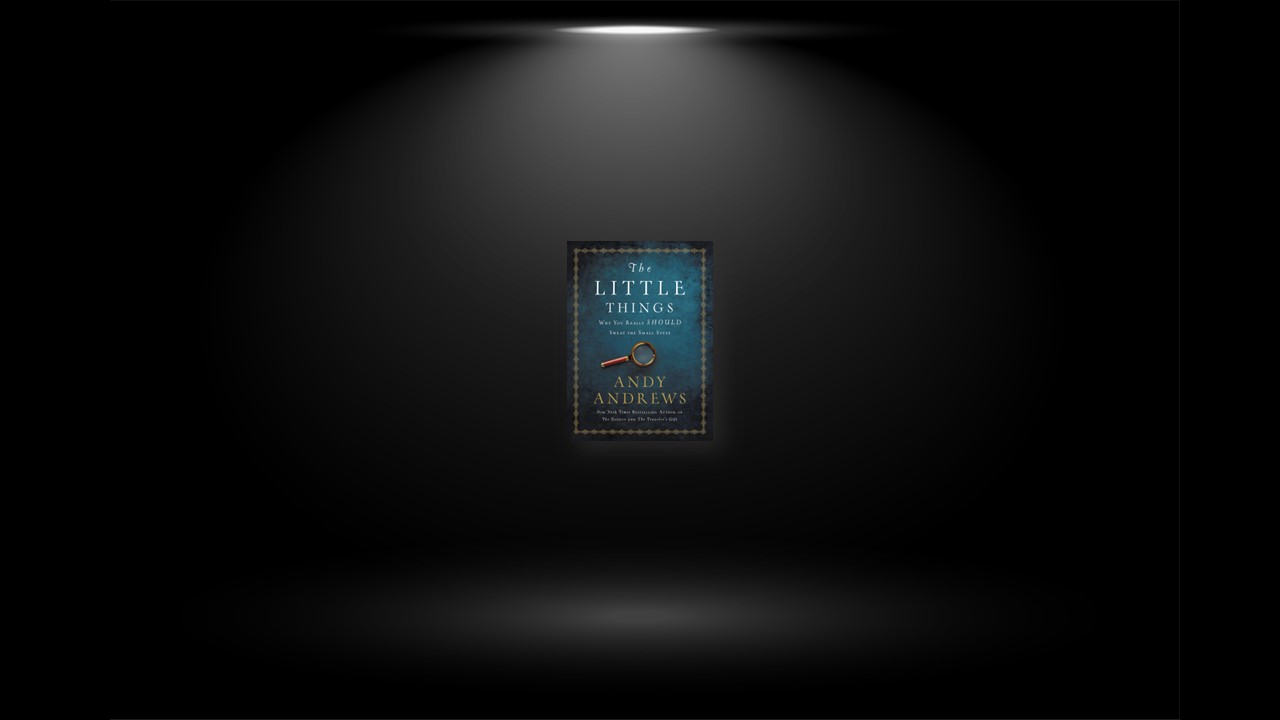A Little Thing . . . like an increase in understanding
It almost goes without saying: there is benefit to learning something new. Most interesting, however, is another rarely considered piece of the puzzle. There is a tremendous—almost overwhelming—competitive advantage to be gained in acquiring deeper understanding and greater clarity, learning more about a subject in which you previously did not excel. Or about which you were singularly uninformed. Or dramatically misinformed.
Think about it. With perspective and clarity comes the realization that you now understand something in a way and at a level you could not have previously comprehended it. If you are in business (and if you have a job, you are in business) or if you participate in a sport by playing or coaching, you will begin to master the first stage of a key process competing on a level where your competition does not even know there’s a game.
That’s easier to do than you might think, especially because the competitors in every industry compete in exactly the same way. And because they all compete in the same way, they watch one another closely and do what they already know to do.
A Little Thing . . . like perspective
For years, every operation in the fast-food industry has had access to the same data, the same facts. After a careful examination of those facts, do all operations see them the same way? Based on the same data, do they all choose the same perspective? No, they do not.
McDonald’s looks at the facts and determines that it only makes sense to strike while the iron is hot, to make hay while the sun shines. There is obviously more money to be made on Sunday than on any other day of the week. The increased crowds of customers must be served quickly. Therefore, the McDonald’s perspective is that Sunday is a great day to bring in as many employees as possible in order to staff their restaurants with the week’s highest number of workers.
Chick-fil-A has also had access to the same data for years. Every time industry facts and figures are released, the executives at Chick-fil-A examine the same details, delivered in the same way and at the same time, as their counterparts at McDonald’s. The information is clear and consistent. Sunday continues to lead every other day of the week in revenue by a large margin.
So after examining the same data, Chick-fil-A’s perspective is that there are some things more important than merely selling another chicken sandwich. Their perspective is that Sunday is a great day to give their employees the day off. This is done to allow families to be together, to allow a time to regroup and take a deep breath, and to allow their employees the opportunity to attend church if they wish.
Same industry. Same data. Different perspectives.
McDonald’s operation is obviously way above average, so it probably doesn’t surprise you to hear that the average McDonald’s restaurant takes in $2.6 million per year. One might be tempted to think that Chick-fil-A would be overwhelmed by that kind of competition and those kinds of numbers. Not even close. Now remember, Chick-fil-A is never open twenty-four hours a day and never open on a Sunday. Yet with a reduced amount of hours and fifty-two fewer days on the calendar, the average Chick-fil-A restaurant brings in four million dollars per year.
Perspective is such a little thing, but it’s the only thing that can dramatically change the results without changing any of the facts.
A Little Thing . . . like being different
WITH SO MANY GOOD, HARDWORKING PEOPLE WHO are striving to achieve more, have you ever wondered why relatively few realize—truly realize—extraordinary results? A large part of the reason can be explained this way: everybody wants to make a difference, but nobody is willing to be different.
If you look closely, you’ll see that most of us reach and maintain a level of “average excellence” that aligns rather closely to the achievements of our peers. In other words, we all tend to get the same general results. And not just similar results to those in our office or on our team . . . no, this phenomenon of similar results occurs worldwide in every industry. It is common in all sports, educational systems, and cultural institutions.
In case you didn’t already know, average people compare themselves to other people. That is, in fact, why they are average. Other people’s finances, marriages, children, houses, vacations, automobiles, you name it—all of these are used by average people to gauge whether their own results are on par. If the average man determines he is a little ahead of his peers, he feels justified in relaxing a bit. If the average woman determines she is somewhat behind, she works harder to catch up. All this happens because average people compare themselves to other people.
On the other end of the spectrum, extraordinary achievers do not compare themselves to other people. Instead, they compare themselves to their own potential. And what might their potential be? Whatever they choose to think it is! One thing is certain: they will not allow you or me to define it for them.
In most cases, extraordinary achievers became comfortable with being seen as “different” or even “odd” long before they achieved the level of success they were after. It’s a distinction that average people often fail to make. If one desires to live life on a different level, that destination will not be reached by traveling the same road everyone else has chosen.
In other words, if you want to be different, you’re going to have to be different!
A Little Thing . . . like change
Change will probably always be a challenge in your life. It’s human nature to resist it. But if you understand the myths and the elements of change, you can respond to it with confidence and creativity and even joy. You can help others respond positively too. Change can be initiated on your say-so and on the timetable you set. Change can be navigated with precision. Change can be directed.
Say a corporate buyer always purchases widgets from a certain vendor, and you want that buyer to purchase his widgets from you. In other words, you need that corporate buyer to change. So you arrange a meeting and prepare to state your case, which can be done in many different ways. But if you can demonstrate to that buyer what’s in it for him (and his company) and if you can prove beyond a reasonable doubt that this is so, then the likelihood is great that the buyer will change vendors. You will have been the agent of that change.
In any form, with any person or group, the principles hold. When what’s in it for them aligns itself with the truth and reality of proof, change is the inevitable outcome.
Change is such a little thing. But as far as little things go, not a single one has bigger ramifications. Change is not our enemy. It needn’t confuse or bewilder us. Properly understood, change can be a medium of peace and harmony.
“How?” you ask. Well, if the change you initiate is responsible, there really will be something in it for the person or group you are asking to change. And if the proof is really there—knowing that proof is truth—there need not be prolonged arguments.
A Little Thing . . . like the best
Have you ever laid out an opportunity with the possibility of great rewards for someone you loved—or perhaps more than one someone? As you watched them struggle, you quietly prayed for them, hoping beyond hope for their success. Without interfering, you closed your eyes, tensing, using every fiber in your being in an attempt to will them onward and upward. And then, after hanging in there for a while and accomplishing a certain amount, these people you loved—perhaps even your own child—just stopped trying. They didn’t actually quit. They just hit a certain mark, maintained their position, and happily accepted whatever rewards were available for that level of effort.
If you have been in this position—or if you can imagine it—you know how much it can hurt. For a parent, it is anguish to know a child could have had more, could have become more, could have gone farther and higher if he or she had only looked up. Had only kept going. Had only believed what you said was possible!
Tragically, you realize that you wanted that greater outcome—THE BEST—for your child more than your child actually wanted it for him- or herself. You knew your child’s capabilities. You knew what it would take to reach the prize. You knew there was a joyous end to the struggle. But he or she didn’t believe it. And now, every time you look at him or her, you think of what could have been.
What should have been.
Greatness is never a product of frailty. Physical and emotional and spiritual muscle is only developed through struggle, and with that muscle comes increased ability and newfound strength. Capacity, competence, and wisdom grow as they are exercised against the resistance of things considered impossible for now. The muscles developed during difficult times are what will eventually turn impossibilities into achievable opportunities for the future.
The inevitable conclusion . . . the only reasonable reality . . . the foundational truth . . . the bottom of the pool is this: You and I should spend less time setting goals to satisfy the expectations of other people and use more time to concentrate fully upon legitimately increasing the level of what we really and truly believe is possible. This can only be done—it will only ever be done—by aligning ourselves on a course to pursue the life that God himself has identified for us as the very best.


